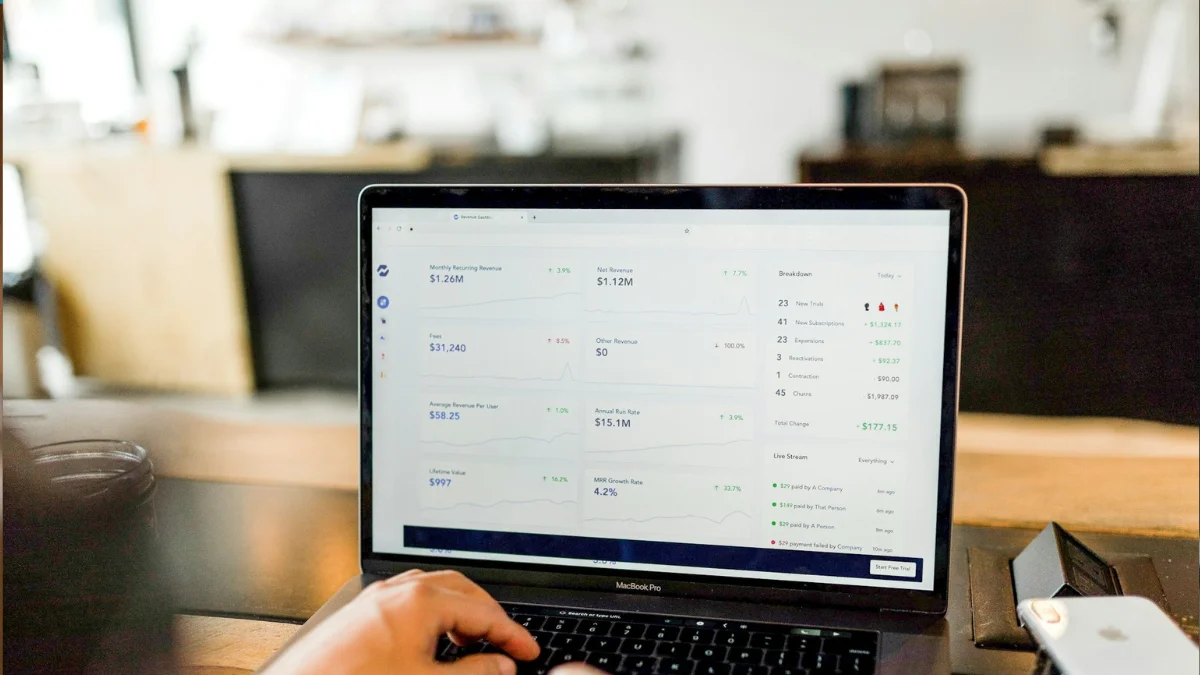White label PPC lets agencies offer pay-per-click advertising services under their own brand name. They partner with specialized PPC experts who handle all the technical work while agencies maintain direct client relationships and control.
Many digital marketing agencies want to offer comprehensive PPC services to their existing clients. However, PPC advertising requires specialized knowledge, constant optimization, and significant time investment to master properly and deliver consistent results.
What Is White Label PPC?

White label PPC means hiring another specialized company to manage pay-per-click campaigns for your clients under your agency’s brand. The PPC provider handles all the technical work, ensuring your clients are unaware of this partnership arrangement.
Here’s how the white label PPC process works in practice: You sell PPC management services directly to your clients using your own branding. Then you outsource the actual campaign work to your white label partner, who handles everything behind the scenes.
How Does White Label PPC Work?
First, you research and select a reputable white label PPC provider that matches your agency’s needs. You discuss pricing structures, reporting formats, and communication protocols. Then you sign a partnership agreement to begin working together successfully.
Next, you present and sell PPC services to your existing clients using your own pricing and branding. When clients approve campaigns, you coordinate project details with your white label partner while maintaining primary client contact and relationship management throughout.
Why Choose White Label PPC Services?
Get Expert Help Fast
PPC specialists possess advanced knowledge and tricks that typically take several years to learn and master. They understand Google Ads, Facebook advertising, and other complex platforms. You gain access to their expertise without lengthy training periods.
Experienced PPC teams have successfully managed campaigns across many different types of businesses and industries. They know proven strategies that work and common mistakes to avoid. This translates into significantly better results for your clients from day one.
Grow Your Business Quickly
Hiring qualified PPC staff internally is a lengthy process that involves searching, interviewing, and training new employees over many months. You need to find skilled people, provide extensive training, and purchase expensive software licenses. Outsourced partnerships let you start immediately.
You can confidently take on many more clients right away without capacity constraints. There’s virtually no limit to how many campaigns your experienced white label partner can handle effectively. This accelerated growth helps your agency scale much faster than traditional methods.
Save Money on Staff
Hiring a qualified PPC expert typically costs between $50,000 to $80,000 annually in salary alone. You also pay for employee benefits, software subscriptions, ongoing training, and office equipment. White label services cost significantly less than full-time staff expenses.
You only pay for the specific work you actually need each month. If you have fewer active clients during certain periods, your costs decrease accordingly. This flexible cost structure keeps your overhead expenses low while maintaining consistently high profit margins.
Key Benefits of White Label PPC

Keep Clients Happy Longer
When you offer comprehensive marketing services, including PPC, SEO, and content creation, clients prefer staying with one trusted provider. They appreciate simplified vendor management and unified reporting. This approach significantly increases client lifetime value and reduces churn rates.
Satisfied clients who see excellent results across all marketing channels become your best referral sources. Word-of-mouth marketing generates high-quality leads at zero acquisition cost. Strong PPC performance makes clients eager to recommend your agency to their business network contacts.
Make More Money
White label providers offer wholesale pricing that allows agencies to maintain healthy markup percentages while remaining competitively priced in the market. Most successful agencies achieve profit margins between 30% to 50% on outsourced PPC work with proper pricing strategies.
You can create attractive service packages that bundle SEO, content marketing, and PPC management together for higher total contract values. Comprehensive packages justify premium pricing while providing clients with integrated marketing solutions that deliver superior results.
Types of White Label PPC Services
Google Ads Management
Google Ads remains the dominant PPC platform with the largest audience reach and most advertising options available. Most businesses require Google Ads expertise for search campaigns, display advertising, shopping ads, and YouTube video campaigns to maximize their online visibility.
Professional white label providers handle comprehensive Google Ads management, including keyword research, ad copywriting, landing page optimization, and bid management. Google frequently updates platform features and policies, requiring specialized knowledge to maintain optimal campaign performance.
Social Media PPC Services
Facebook, Instagram, LinkedIn, and Twitter advertising platforms require completely different approaches compared to traditional search engine marketing. Social media PPC demands unique audience targeting strategies, creative requirements, and platform-specific optimization techniques for success.
Social advertising excels at reaching new potential customers who aren’t actively searching for your services yet. These campaigns work synergistically with Google Ads to create comprehensive digital marketing funnels. Combined approaches typically deliver superior results compared to single-platform strategies.
Microsoft Advertising
Bing and Microsoft advertising networks often provide lower competition levels and reduced cost-per-click rates compared to Google Ads. Many businesses completely ignore these platforms, creating excellent opportunities for smart advertisers to capture market share at lower costs.
Experienced white label providers strategically use Microsoft advertising alongside Google campaigns to maximize client reach and improve overall return on investment. This multi-platform approach often leads to significantly better results while reducing average customer acquisition costs.
How to Choose White Label PPC Partners
Check Their Experience
Look for providers who have successfully managed campaigns for businesses similar to your target clients. Request detailed case studies, client testimonials, and performance examples that demonstrate their expertise in relevant industries and business models.
Ensure they possess deep knowledge of your specific industry, including seasonal patterns, competitive landscapes, and regulatory requirements. Industry-specific experience translates directly into better campaign performance and reduced learning curves for new client onboarding.
Look at Their Reports
Comprehensive reporting capabilities enable agencies to demonstrate value and ROI to their clients effectively. The best white label providers offer fully customizable reports with your agency branding, real-time data access, and detailed performance metrics across all campaign elements.
Request sample reports during the evaluation process to assess quality and professionalism. Verify they track the specific metrics your clients care about most. Professional presentation materials strengthen client relationships and significantly improve contract renewal rates.
Test Their Communication
Your white label provider should maintain excellent communication standards with quick response times to urgent questions. They should offer dedicated account management, scheduled review calls, and proactive updates about important campaign changes or opportunities.
Establish clear communication protocols, including regular reporting schedules, emergency contact procedures, and escalation processes, before signing partnership agreements. Strong communication prevents misunderstandings and maintains positive working relationships over time.
White Label PPC Pricing Models

Percentage of Ad Spend
Most white label providers charge monthly management fees calculated as a percentage of total advertising spend, typically ranging from 10% to 20% depending on account complexity and service levels included. This model aligns provider incentives with campaign performance and growth.
Percentage-based pricing automatically scales with your client’s success and budget increases. When clients invest more in advertising due to positive results, both you and your provider benefit financially. This structure encourages providers to focus on driving genuine business growth.
Monthly Flat Fees
Some providers prefer charging consistent monthly retainer fees regardless of advertising spend fluctuations. Flat fee pricing might range from $500 to $2,000 monthly, depending on included services, campaign quantity, and required work complexity for each specific client account.
Fixed pricing provides predictable monthly expenses for easier budgeting and client billing processes. This model works particularly well when you know exactly what services each client requires. Ensure scope definitions prevent unexpected charges for additional work requests.
Best Practices for White Label PPC Success
Keep Your Brand Strong
Ensure all client-facing materials, including reports, presentations, and communications, consistently use your agency’s logo, colors, and brand guidelines. The white label provider should never contact your clients directly or use their own branding in any client-visible materials.
Develop professional templates for common client interactions, including onboarding documents, monthly performance reports, and strategy presentations. Consistent branding reinforces your agency’s professional image and maintains client trust throughout the entire relationship.
Set Clear Goals
Communicate specific, measurable objectives with both your white label provider and clients before launching any campaigns. Clear goals might include increasing website traffic, generating qualified leads, driving online sales, or improving brand awareness within defined target markets.
Document success metrics and performance expectations in writing for all parties involved. Share these objectives with your white label partner and review progress monthly. Well-defined goals enable accurate performance evaluation and continuous campaign optimization efforts.
Review Results Monthly
Schedule regular performance review calls with your white label provider to analyze campaign results, discuss optimization opportunities, and plan strategic improvements for the following month. Use these meetings to stay informed about campaign performance and industry trends.
Leverage these sessions to expand your PPC knowledge by asking detailed questions about strategy decisions and optimization tactics. This knowledge helps you communicate more confidently with clients and identify additional service opportunities within existing accounts.
Common White Label PPC Challenges
Managing Client Expectations
Some clients expect immediate, dramatic results from new PPC campaigns within the first few weeks. Help them understand that meaningful performance improvements typically require 2-3 months of testing, optimization, and refinement to achieve sustainable results.
Explain that effective PPC management involves continuous testing of ad copy, keywords, targeting options, and landing pages. Share monthly progress reports highlighting improvements and optimization efforts. Honest, transparent communication builds stronger client relationships and realistic expectations.
Quality Control Issues
Since you’re not personally handling the day-to-day campaign management, you must implement regular quality control processes. Review ad copy, landing page selections, targeting settings, and budget allocations to ensure everything meets your agency’s quality standards.
Require your white label provider to seek approval for significant changes before implementation. This approval process prevents potential problems and keeps you informed about important strategic decisions. Maintain control over client relationships through active oversight.
Conclusion
White label PPC services provide digital marketing agencies with an excellent opportunity to expand service offerings, increase revenue, and improve client satisfaction without the significant overhead costs of hiring specialized internal staff members.
Success requires careful provider selection, clear communication protocols, and ongoing performance management. Agencies that implement these strategies effectively discover that white label partnerships become valuable long-term growth drivers that enhance their competitive market position.










